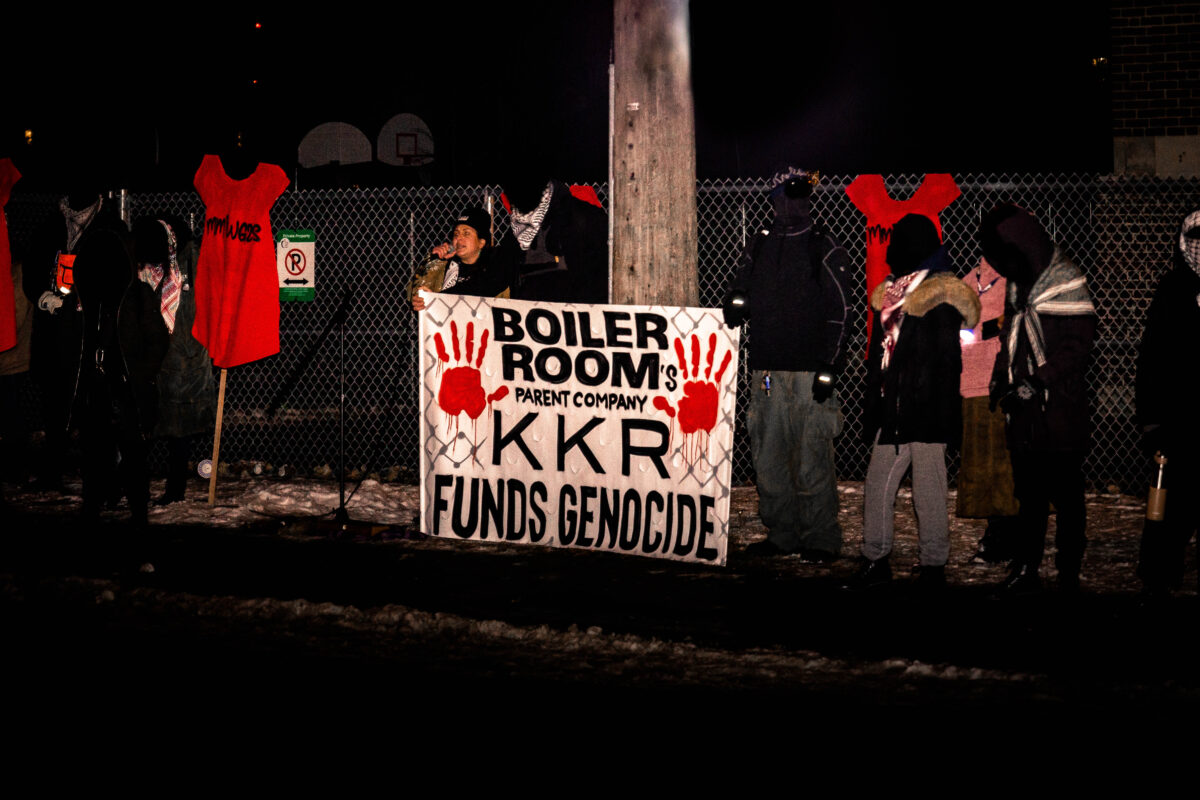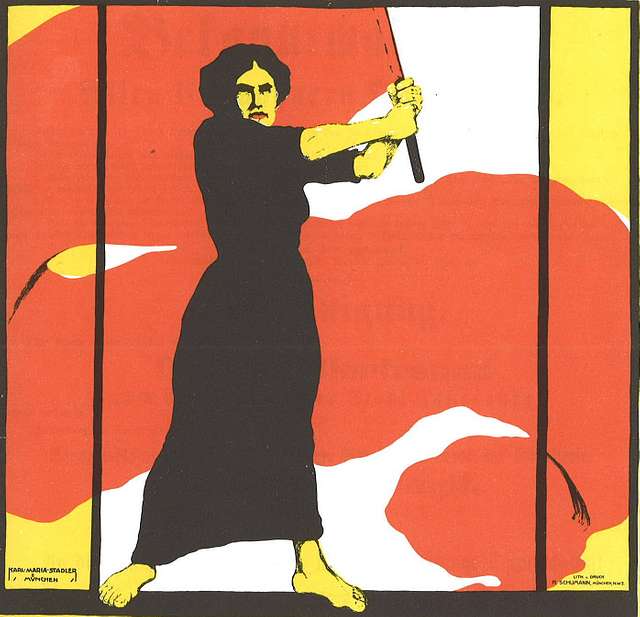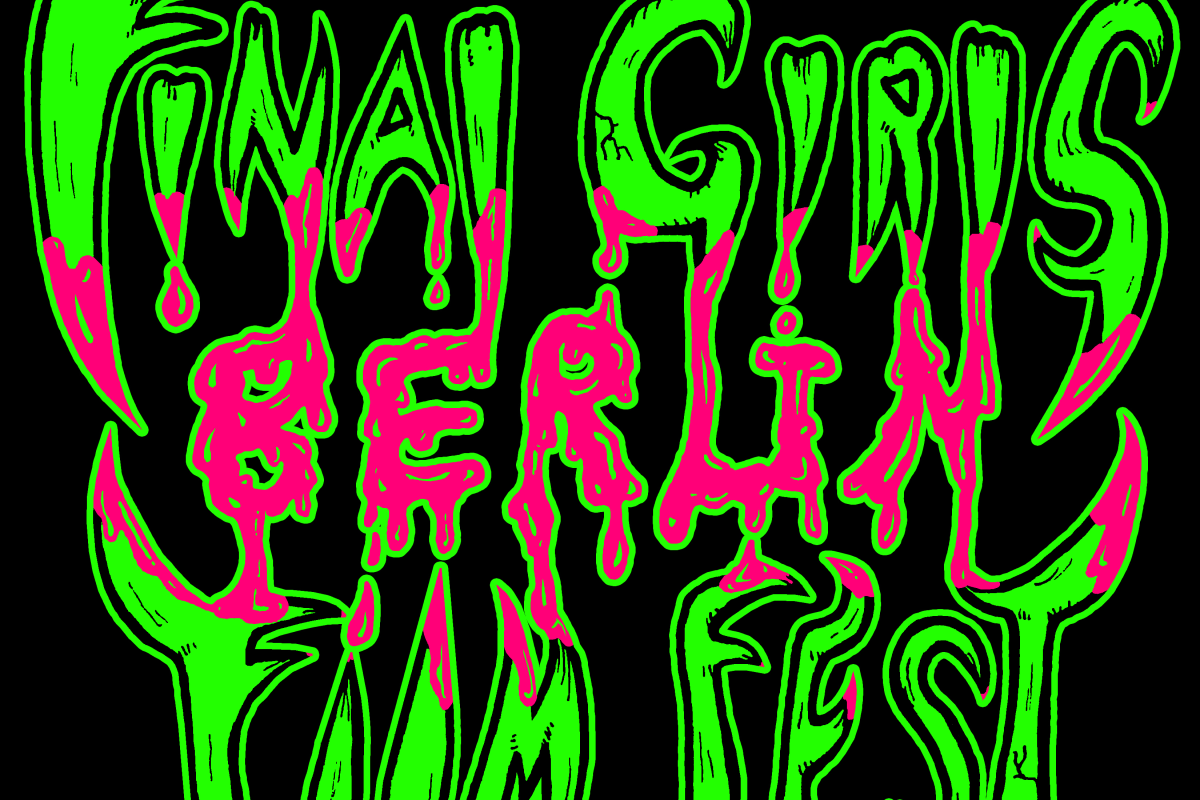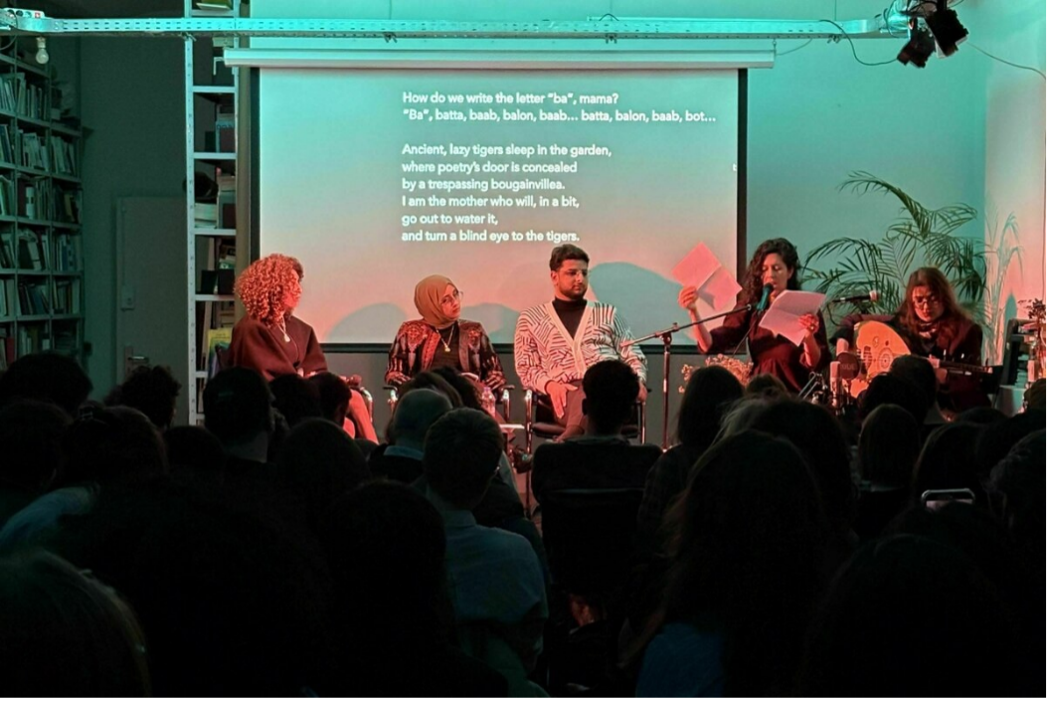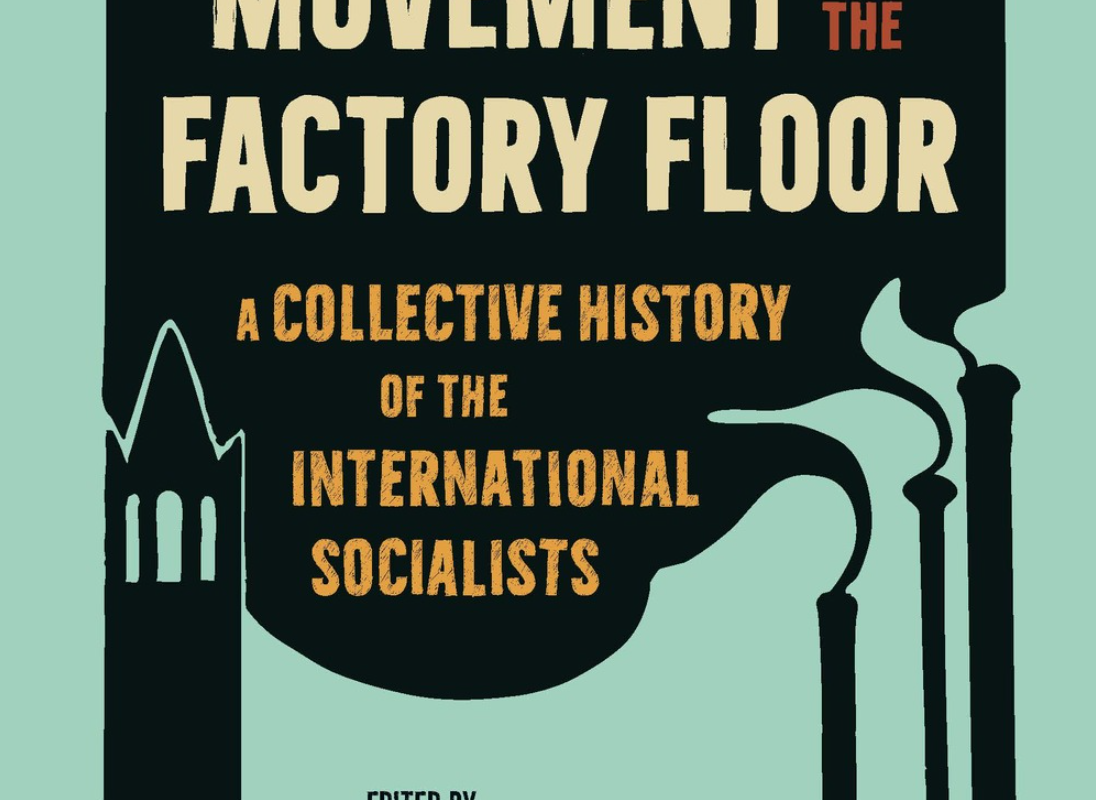On a warm evening in July, cars unloaded partygoers outside Under the K Bridge, the venue hosting Boiler Room’s NYC party. They were greeted by a crowd of activists, ravers and Indigenous Land Defenders, bearing placards reading “Fuck a pro-genocide pipeline party” and “KKR colonizes, KKR kills”, referring to the hedge fund which now owns Boiler Room, along with 85+ music festivals. A TikTok records the moment an incoming ticketholder sees the protesters and learns in real time about Boiler Room’s new owner. “Don’t drop us off here!” she tells the taxi driver, amid panicked laughter.
Meanwhile, across NYC, designated counter-parties to Boiler Room at Mood Ring, Earthly Delights and Basement started opening their doors. A map of these parties had been circulated earlier on Instagram by the Boycott Room campaign, one of a rapidly expanding cluster of groups in nightlife driving the boycott of KKR-owned venues. At around 8PM, an actionist who had infiltrated Boiler Room jumped up on stage with a banner reading “Boiler Room + KKR fund genocide. Boycott now”.
“Actionists are just now recovering from the atrocious vibes of even a few minutes inside the genocide party,” Boycott Room reflected in a reel the next day. The aforementioned TikToker concurred. In an update story posted after the event, she expressed regret for entering it. “This shit high key felt like a different kind of hell. Anything related to pro genocide has an evil aura. We paid $400 for this shit. Boycott the Boiler Room.”
**
This is a snapshot of the global, anticolonial insurgency within rave culture. Autonomous direct action, mass refusal and withdrawal of labour. Expanding grassroots coalitions, growing DIY infrastructure. The humble, implacable and patient pulling at threads.
News of KKR’s acquisition of Superstruct Entertainment and its portfolio of venues had already been noted by the Flow Strike campaign in 2024. But the sale of Boiler Room to Superstruct in January 2025 brought the news to wider attention, through a virally circulated Instagram explainer by WAWOG Toronto and a direct action led by Wet’suwet’en people and Palestinians.
Six months later, the explainer and its diagram remain confronting. KKR, one of the world’s largest hedge funds, is almost comically evil. It has deep ties to the ”Israeli” colonial project—funding data, arms and land purchase companies in the entity, and the IOF itself via the ‘Friends of the IDF nonprofit. One of its Chairmen is David Petraeus, the architect of the US-led invasions of Iraq and Afghanistan and former head of the CIA. It is also the main investor in the Coastal GasLink pipeline poisoning and destroying First Nations lands in the west of Turtle Island (Canada)—making it a target of Wet’suwet’en direct action since 2020.
A few days after the post landed, three DJs—Princess Elf Bar, DJ Myna and Shannon From Admin—withdrew from a Boiler Room in Sheffield, UK. A week later, the community began reckoning with Superstruct’s ownership of festivals popular with queer and underground artists like Mighty Hoopla, Sonàr and Field Day.
In March, Boiler Room announced a merch collaboration with FC Palestina and the Sameer Project, a Palestinian led mutual aid initiative. Just hours later, after being apprised of KKR, the Sameer Project issued a statement of refusal, which remains a core moral and political compass for the movement:
“We will always say no to any kind of normalization or ties with organizations linked to zionism in any shape or form. No zionist money comes without an agenda. […] Tomorrow KKR will turn around and be on the defensive about investing in Israel by saying they donated to Gaza through one of their acquired companies. They will say this to wash away their complicity.”
From there, the revolt rapidly expanded and globalized. Seven DJs pulled out of Boiler Room Istanbul. DAYTIMERS, a British South Asian collective, withdrew from Superstruct-owned Mighty Hoopla and Lost Village. EYRA, Animistic Beliefs and dj g2g individually withdrew from Sonàr. Dozens of their peers shortly followed suit. Half the Field Day line up dropped out. KAALO, a queer/femme-led DIY collective in Nepal, publicly dropped their Boiler Room collab. The Bay Area Boiler Room was cancelled after local pressure. Around half of the stages booked at Milkshake, a queer-centred festival in the Netherlands, withdrew, with a clear material demand: “As long as a festival is owned by KKR, we will boycott. We will not accept offsets or compromises.”
New developments arrive daily. The poles and focal points of revolt are always shifting. But in recent weeks, Brazil and Puerto Rico have seen major flashpoints, with local actionists getting Boiler Room events in both Saô Paulo and San Juan cancelled. “A global event backed by a big Zionist corporation stepped back because the scene got organised” said the group in Brazil.
“Black, Indigenous, peripheral, Palestinian and dissident people united for a greater cause.”
“We refuse to let our culture be used to whitewash genocide.”
**
The revolt is massive, global and popular. It is overwhelmingly comprised of global Majority, trans, queer and Indigenous people from the underground. Most are unpropertied and precarious. The fees they forego in the KKR boycott are often needed to pay rent.
It is militant. Its basic, entry level premises are an to end capitalism, uncompromising support for Palestinian resistance, the dismantlement of the ‘West’, pan-Indigenous liberation, death to all settler colonies, including those on Turtle Island (the ‘US’ and ‘Canada’). Deviations from Al Thawabit, the core principles of Palestinian liberation, are rare and attract immediate, organic rebuttal. It does not have leaders. Its core tactics are boycott, direct action, disruption, sabotage.
A revolt of this scale and militancy within electronic music culture was not inevitable. Clubland, particularly in Europe, has complex relationship affinities with the project of the West. The raver is often targeted for co-option into the imperial project—whether, in the West, as a symbol of freedom and disinhibition against a racialised Other; or, in the Global South, as potential conscripts into a comprador class. The Zionist entity has endlessly sought to position Tel Aviv as, per Nerdeen Kiswani, “a beacon of light—progressive, diverse and full of life…making apartheid look like a party”. Given the intersection of Operation Al-Aqsa Flood with a settler music festival, many of us braced ourselves for a grim tide of reactionary ‘PLUR’ and ‘both sides’ takes from ravers and DJs.
That this did not materialise—or, more accurately, was quickly staunched—attests, at least in part, to reservoirs of resistance and anticolonial militancy within nightlife. These have been activated by the genocide, alongside a visceral, ancestral ick at the commodification of underground culture, most grotesquely typified by the extractive, colonial dynamics of Boiler Room.
The structural position of the DJ/raver, despite efforts at recuperation, is still, it seems, generative of dissent. Like queers (also experiencing a re-radicalisation over Palestine), ravers are at once unbearably central to, yet askance of, the operations of imperial capital.
But besides these undergirding dynamics, can anything be drawn from how the movement has shaped itself—and created the conditions for the current, ongoing escalation? Why are boycotts in electronic music popping off like nowhere else in global culture?
**
No gods, no leaders
Nothing in the movement has been rolled out from above, or according to any central formulas or scripts. Decision-making is not abrogated to representative bodies. There are no intermediaries who treat or negotiate on behalf of a base. The boycott has been built through the organic accretion of autonomous acts of refusal. The energy and spirit of these refusals and actions is never workshopped or uniform. This means it avoids the overdetermined feel of NGO writing. The texts emerging are idiosyncratic, embodied, vernacular, playful, which makes them memorable and resonant—inspiring action where more top-down forms of political communication might not. The centrality of trans DJs to the movement informs this corpus: see Cultural Solidarity’s latest video, MC’d by Black trans artists on the sidelines of the NYC Boiler Room strike fundraiser:
“Boiler Room, you a punk ass bitch. You always and forever will be a punk ass bitch miss thing. You’re not tearing it, you’re not eating, your mama a bitch, your grandmama a bitch […]”
Statements learn from each other, reuse and cite text, and over time a loose, shared set of premises and parameters have developed. But there is no hegemon, no disciplinary body, no notion of copyright. This means that groups and coalitions can spring up rapidly and unceremoniously. Trust is established quickly, through action rather than deliberation, because there isn’t a strong sense (at least yet) of requisite turfs, tributes to be paid.
Holistic scope, imaginative coalitions
KKR is a universal antagonist to life—an entity which, like ‘Israel’ and ‘the US’, despoils across geographies and scales: funding the Palestinian genocide, destroying Indigenous lifeworlds, corporatising raves, privatising healthcare systems and housing. These multiple, intersecting scales lead any actionist on KKR ineluctably to an anti-capitalist, pan-Indigenous frame, providing a guard against recuperation into empire.
This is generating new coalitions which disturb the idea of the raver as a dissolute, implied White imperial subject. The revolt is not confined to the dancefloor. Remember: it was Wet’suwet’en people in Toronto who kicked off the revolt, and they continue to be heavily involved. There is no hermetic sense of the raver as distinct from other embodiments. See also the important contributions of groups like the Muslim Social Justice Initiative and Nijjormanush to the Boiler Room boycott.
Community and mutual aid
By freeing action from organizations, the endless potential of grassroots activism is revealed. Take the Bay Area. After concerted community pressure, an alliance of local collectives, operating under the moniker B.A.S.S. (Bay Area Solidarity Strike), caused so many artist withdrawals that Boiler Room San Francisco had to be cancelled. On the same day as the cancelled Boiler Room, their DIY counter-party raised over $9000, helping cover strike funds in the Bay Area and beyond as well as supporting mutual aid efforts in Gaza.
This bottom-up approach created lasting, meaningful bonds within and across communities in the Bay Area. But its impacts reverberated nonlocally, too. The B.A.S.S. initiative was rapidly reproduced in New York City (Big Apple Solidarity Strike), paving the way for their own strike fund and direct action. These precedents later informed the mass withdrawal of queer artists from Milkshake festival in the Netherlands, and the solidarity collective which emerged from it (R.U.I.S), which is based on similar DIY and anticapitalist values. In a sweet circular moment, the OG Bay Area boycotters ran a zine sale to support the Milkshake action.
These humble acts of community building, while often enacted through acts of refusal and boycott, are constructive in the most literal sense. While local, they are not parochial, creating material, transnational networks of solidarity and care.
Be reasonable, demand the impossible
The Superstruct-owned festival is uncanny and insidious. Its moniker is a dead, floating signifier, communicating vague affective hooks: queer, surfer, punk, underground. We are invited to get our monodirectional kicks in a grey strip mall of tailored experiences. The early, medieval festival, a precursor to the rave, was a space where “the world turned upside down”—one of sexual license, dissolved classes, kings becoming peasants for a day. The KKR festival is the world reaffirmed in its grim, implacable realities—a crushing acquiescence to capitalist realism.
It is precisely this realism that the movement rejects, in theory and deed. Drawing on the Wages for Housework movement of the seventies, theorist Kathi Weeks extols the power of the “utopian, unreasonable demand”—which, rather than a predestined route to narrow wins or achievable horizons—constitutes an ongoing insurgency, a “process of constituting a new subject with the desires for and the power to make new demands”.
The ambition, scope and unreasonableness of the demand—an anticapitalist rollback of the corporate takeover of rave culture—is what gives this movement potency. It also makes it effective and, yes, strategic. Consider: the news about KKR was only popularised in January. Just 7 months on, the corporate festival circuit is in ruins. DIY culture is reviving everywhere. And a system of rewards, which prioritised acquiescence, guild thinking, the collegiate co-facilitation of bag chasing, is being wrenched apart.
Abdaljawad Omar, writing on new circuits of rebellion in the refugee camps of the West Bank (The New York War Crimes, Nakba issue, 2025), writes:
“The current wave of resistance privileges the act itself—the moment of resistance—as a political assertion not necessarily embedded in a coherent project. It insists on action even in the absence of a clear horizon. This is not a failure of thought but an exposure of the limits of our inherited narratives. It answers the question “What is to be done?” simply: Act—and when you are unsure, act more.”
It is, he continues, “a form of struggle that reveals the exhaustion of inherited frameworks and insists on staying with the rupture”.
As fascism and anticolonialism recrudesce in parallel, who would bet on received patterns or lessons from the inert 2010s? No leaders have led this revolt; no strategists mapped it or predicted it, or prognosticated a pallid sequence of little wins and KPIs. Instead, by pulling at threads with humbleness, insistence and patience, a small community has brought many seemingly impregnable dynamics—commodification, competition, celebrity—to a tottering fragility.
As the international liberal order reveals its true contours, its insinuations within club culture are also becoming apparent. The credo of capitalist realism, that things must always get worse, that we must take the despoilation of our rituals, our communities, of all that is sacred, is facing non-acceptance. The consolidation of rave culture is not inevitable. Parties and festivals do not need to grow, become brands. Boiler Room does not have a right to exist. Per DJ and journalist Arielle Lana: “These platforms, they don’t need to be like the holy grail. We can dismantle them and we’ll still survive.”
Ravers for Palestine is an anonymous collective working to foster solidarity and resistance within electronic music culture.
